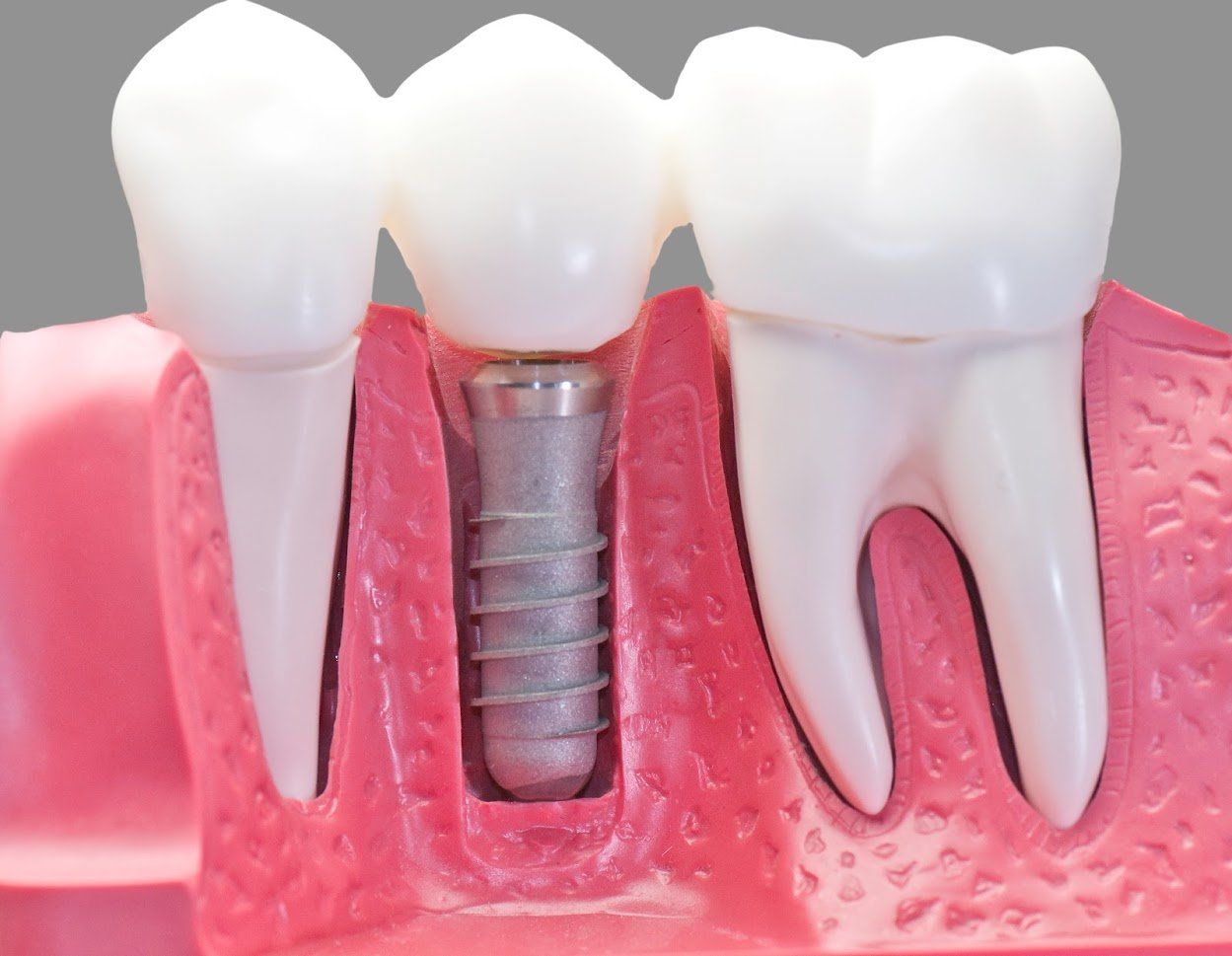Dental Implant Procedure: What to Expect

Dental implants are long-term replacements for missing teeth, which restore your smile and improve nutrition. The process of getting implants occurs in stages, from a comprehensive consultation to recovery. Discover the steps involved when you get dental implants below.
Consultation
Your dentist must evaluate your candidacy for the implants through X-rays and medical history. Bone density is the primary determining factor as to whether implants suit you. You must have an adequate, healthy jawbone to anchor the implant, and a bone graft may be necessary if your jawbone is too thin or soft. You must also be in good oral health, and your dentist will check for any signs of gum disease or other complications. Gum disease can increase the likelihood of infection after dental implant surgery, leading to implant failure.
Your dentist also evaluates your overall health, as diabetes, cardiac issues, and other conditions reduce the chances of implant success and increase the probability of an infection. Be honest with the dentist about lifestyle habits like smoking that slow healing. Additionally, consider the time commitment since the entire process takes several months to over a year.
Implant Placement
Your dentist either places the implant and tooth crown on the same day or over numerous appointments, typically several months apart. These phases are discussed below.
Implant Placement
The dentist uses local anesthesia to numb the area for treatment. Then, an incision is made to access the placement site and the implant is placed. The implant stays covered under the gums, and you recover at home. The gum tissue heals quickly.
The healing time for the implant is usually several months but depends on the quality of bone in the area as well as your overall physical health. You shouldn't exert any force or stress on the placement site. (Like chewing hard things in that area). If you are conscious about the missing tooth, your dentist can have a temporary denture made to replace the tooth for aesthetic purposes.
Osseointegration
Over time, the bone grows around the implant and makes the implant stable in the bone so that it serves as the artificial tooth's root. This process is called osseointegration and takes a few months.
Abutment Placement
The next phase of the procedure is placing a metal piece called an abutment to connect to the implant. The dentist may place this connector in the first appointment or on another day under a local anesthetic. Your gums take a short time to heal after the abutment placement.
Crown Placement
Once your gums heal, your dentist makes an impression of your teeth and customizes a replacement tooth called a crown based on your bite. The dentist places the crown onto the abutment for a permanent result. The crown matches your teeth's natural color, feel, and function.
Recovery and Long-Term Care
Many people who get dental implants report only a little discomfort, similar to a tooth extraction during the procedure. You may experience bruising, minor bleeding, swelling, and mild discomfort that reduces with over-the-counter painkillers.
Let your dentist know if you have continued discomfort or an uneven bite. Dental implants boast a high success rate, although you have a risk of infection as with any other oral surgery procedures.
Dental implants require daily brushing and flossing, just like natural teeth, and you don't need any special cleaning items. Regular checkups are also vital, as they let your dentist catch infections or other issues at their earliest stages to avoid complications.
At Airport Road Dental Associates, PC, we offer individualized treatment plans that include dental implants for a long-lasting, natural smile. Call us today to enjoy the benefits of customized dental implants.


















